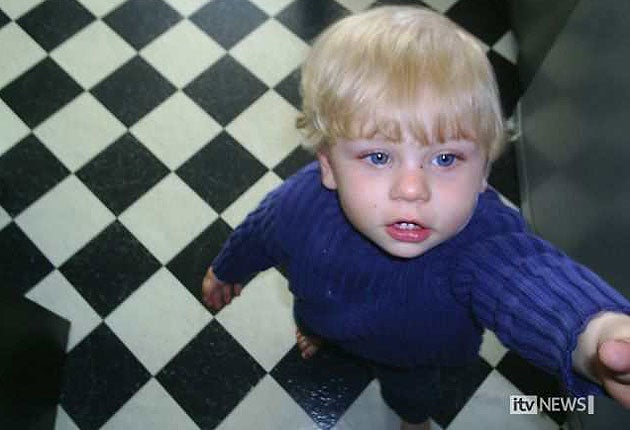Lack of guardians leaves abused children at risk
Youngsters given court protection orders face a long wait for a social worker to support them

Hundreds of vulnerable and abused children have been left without proper protection because of a shortage of experienced guardians, according to official figures.
Record numbers of children were subject to court protection orders over the past six months, but many do not have an independent guardian to safeguard their interests in what are life-changing proceedings.
A guardian is an experienced social worker who is appointed by the court to represent the interests of the child in what can be long, complex and distressing proceedings to decide whether or not it is safe for them to stay at home.
The alarming findings come almost exactly two years after the tragic death of Baby Peter and days after staff shortages and poor leadership were identified as chronic problems which continue to blight child protection services. The arrest of two teenagers in London last week after their four-month-old son died of suspected head injuries has also renewed anxieties and triggered an inquiry into whether health and social care agencies could have done more in his case.
Experts warn that children are more likely to be kept at home in a dangerous situation or wrongly taken into care because they are now waiting weeks or even months to be allocated a guardian whose job it is to investigate the assessments done by social workers and claims made by the child's family. The Independent on Sunday has even learnt of a small number of children progressing through the entire court process without ever having the support of a guardian.
According to Nagalro, the professional association for children's guardians, family reporters and independent social workers, frontline guardians have become overmanaged, undervalued and disillusioned, similar to the way child protection social workers have been treated in recent years. Misplaced and highly bureaucratic priorities set by government organisations, combined with the increase in court applications, have led to a decline in their numbers, their independence and therefore a dangerous situation for vulnerable children.
Cafcass (Children and Family Court Advisory and Support Service) is the government quango responsible for managing guardians in divorce, child abuse and adoption cases since 2001. Alison Paddle, an experienced guardian and spokeswoman for Nagalro, said: "It is completely perverse that while the rest of the social work world wakes up to where the problems have come from, Cafcass, which had an experienced and skilled workforce that was moderately managed, seem hell bent in replicating the worst of what was wrong with local authority social work. They are sleepwalking into a really dangerous service for children in the courts."
There were 774 care order applications in June, the highest on record. But numbers have remained consistently high since Baby Peter's tragic death at the hands of his stepfather and mother hit the headlines last November. According to experts, the vast majority of these children have already suffered months or years of abuse or neglect.
Correspondence seen by the IoS from one Cafcass manager admits that high-priority cases – those children left at home in potentially risky situations – can expect to wait between four to eight weeks for a guardian. Low-priority cases – those in foster care or staying with another relative temporarily – can expect delays of five months at least.
There are nearly 400 unallocated cases in London and 60 in Merseyside alone, which means an estimated 1,000 abused or neglected children, are without a guardian's watchful and independent eyes. The president of the Family Division of the High Court issued emergency measures last week in an attempt to address the current backlog of cases which has left hundreds of children in limbo. But many guardians believe the moves will limit their role at the expense of child safety.
Cafcass claims the sustained rise in care order applications is unprecedented and means it must find ways to prioritise its work as there is no more money available. After a series of poor ratings by Ofsted, which inspects the service, there are reports of Cafcass managers in some areas ordering guardians to update notes and complete reports at the expense of frontline court work in the weeks leading up to an inspection.
An Ofsted spokesperson said: "Ofsted has not increased bureaucracy for guardians. It is necessary for us to examine case files to ensure that the assessments, decisions and recommendations about individual children, made by guardians to the court, are transparent and supported with evidence. We are not aware of any instance where a guardian has been advised not to attend court in order to update files for an inspection. We would be very concerned if this occurred."
Join our commenting forum
Join thought-provoking conversations, follow other Independent readers and see their replies
Comments
Bookmark popover
Removed from bookmarks